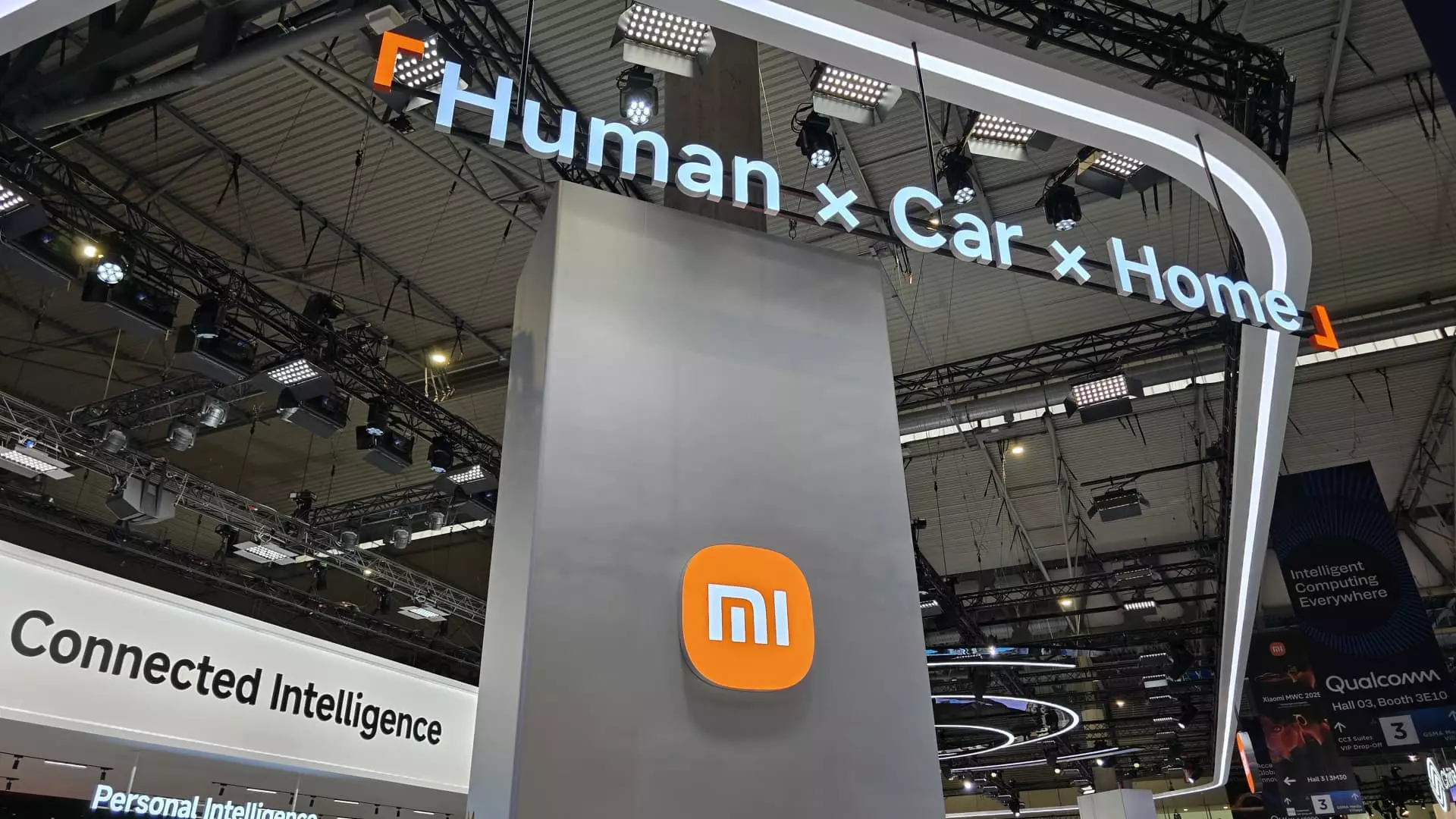As the landscape of global technology shifts, Chinese smartphone manufacturers find themselves in a precarious position, navigating the turbulent waters of U.S.-China relations. The complexities of trade disputes, particularly over technology and intellectual property, have created an atmosphere of uncertainty for brands like Xiaomi, Honor, and Oppo at the Mobile World Congress (MWC) in Barcelona. While these companies have gained a foothold in markets across the globe, their burgeoning success is often overshadowed by the looming threat of regulatory scrutiny and potential sanctions resembling those faced by Huawei.
A few years ago, Huawei towered above its competitors, heralded as a titan of the smartphone industry. But its glory diminished abruptly under the weight of U.S. sanctions, a cautionary tale that other Chinese brands now watch with trepidation. As Donald Trump re-enters the political arena, the concerns are palpable. Trump’s “America First” agenda, particularly regarding technology, could devastate manufacturers aiming to break into international markets. Analysts suggest that the shadow of Trump’s policies has become the metaphorical “elephant in the room” at major technology showcases like MWC, influencing everything from product launches to strategic investments.
Innovation vs. Anxieties
At MWC, the atmosphere buzzes with technological advancements yet tinged with apprehension among Chinese participants. Companies like Xiaomi, which proudly showcased its cutting-edge electric vehicle alongside high-spec smartphones, are pushing innovation to the forefront. Honor’s announcement of a monumental $10 billion investment in artificial intelligence underscores a commitment to staying competitive. Meanwhile, Oppo is attempting to market its AI privacy features, positioning itself as a consumer-friendly choice.
Yet amidst this vibrancy, a stark cautionary sentiment prevails. As noted by industry analysts like Ben Wood from CCS Insight, the excitement generated by new products must be balanced against the risks of attracting unwarranted attention from U.S. regulators. The question looms large: how much visibility can these companies afford without drawing scrutiny that could stifle their growth? The fear is not unfounded. In an environment where a few words from political leaders can alter market dynamics, the potential backlash against Chinese tech is an ever-present concern.
Strategic Play: Targeting Europe Over the U.S.
One factor working in favor of Chinese smartphone manufacturers is their strategic focus on European markets rather than the U.S. This redirection could serve as a buffer against the harsh realities of U.S.-China relations. Industry experts like Francisco Jeronimo from IDC assert that this tactical pivot shields these brands from the harsh spotlight cast by Washington. By orienting their efforts toward Europe’s more accommodating regulatory environment, these companies may effectively sidestep the increasing scrutiny associated with Chinese exports.
While this approach may seem prudent, it raises questions about market diversification and long-term viability in the U.S. Which brands can afford to ignore one of the world’s largest consumer markets? Overreliance on Europe may create vulnerability if conditions there change. Additionally, how will these companies evolve their branding and innovation strategies in markets where consumer preferences diverge from those in the U.S.?
The Double-Edged Sword of Dependency
Adding another layer of complexity is the interdependent relationship between Chinese tech companies and American suppliers. Many Chinese smartphones utilize Google’s Android operating system, Qualcomm’s chipsets, and Microsoft’s software for their tablets and laptops. This heavy reliance on U.S. technology underlines a potential minefield. If the U.S. were to impose restrictions not only on Huawei but extend them to other Chinese competitors, the fallout could affect American firms too, given the symbiotic nature of these relationships.
Neil Shah from Counterpoint Research highlights this paradox, pointing out that American tech firms would feel significant pain if they cut off access to the Chinese market. “Qualcomm will lose out, Microsoft will lose out, and eventually Google will lose out as well,” he emphasizes. This situation places the U.S. administration in a bind: aggressiveness towards Chinese firms could inadvertently harm their own economy. Thus, the viability of continued mutual dependency may keep the worst scenarios at bay, though the inherent unpredictability of politics makes this no guarantee.
A Future Steeped in Uncertainty
The future of Chinese smartphone manufacturers remains clouded by external factors that can shift with little notice. Their innovation and growth efforts face threats from the broader geopolitical chess game between the U.S. and China. As these companies strive to stake their claim in the global marketplace, they must remain vigilant, continually reinventing strategies that reflect both market demands and prevailing political climates. With technology and politics so deeply intertwined, the stakes have never been higher for these fledgling giants looking to emerge from the shadows of their more illustrious predecessors.

